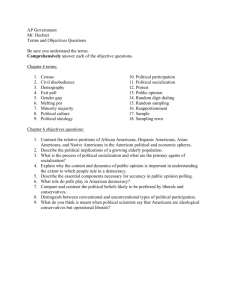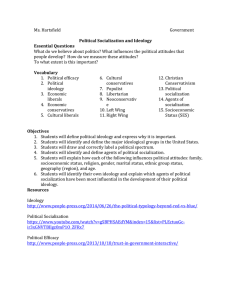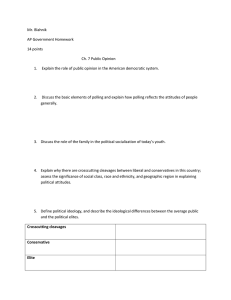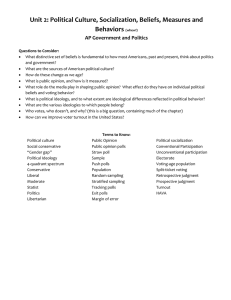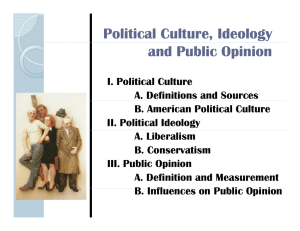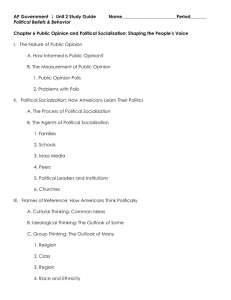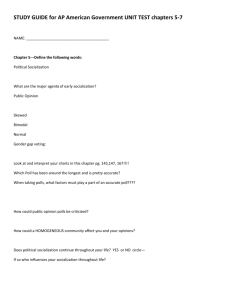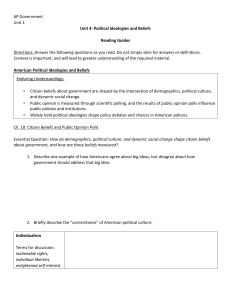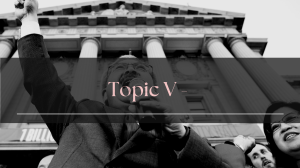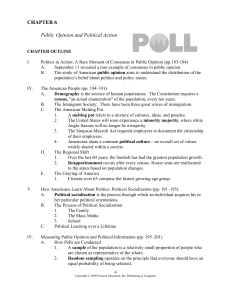Chapter 6 Public Opinion and Political Socialization
advertisement
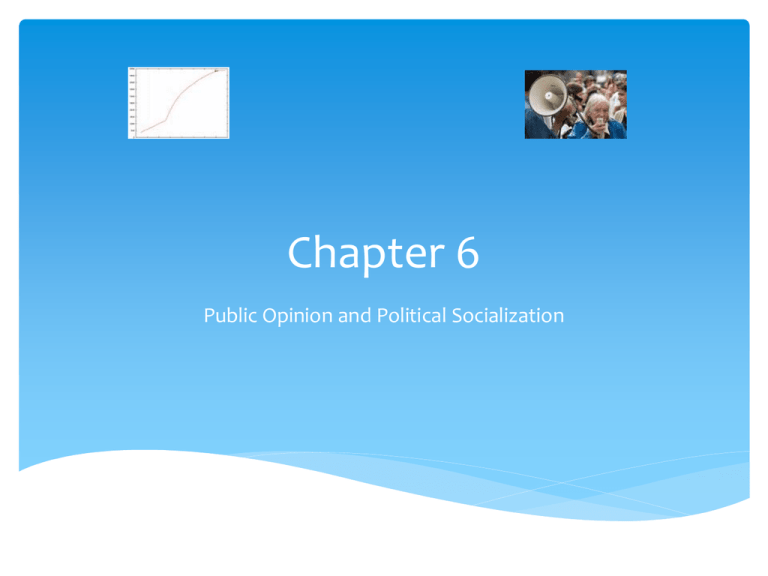
Chapter 6 Public Opinion and Political Socialization Public Opinion Term not easily defined Often literally no majority opinion In public opinion, the “public” is usually a smaller segment of the populace. Public Opinion Usually taken from a sampling Pluralist in nature Public Opinion The politically relevant opinions held by ordinary citizens that they express openly Sometimes well informed and sometimes not Measurement of Opinion Opinion Polls 1. Include a relatively small sample 2. Estimates populace views based on sample Measurement of Opinion 3. 4. Sample often chosen at random Sampling errors can occur when not enough folks are polled News polls, Gallup Poll, etc. Problems with Polls 1. 2. 3. Sampling errors Questions worded in a biased manner Unfamiliarity of polling sample to question Used and relied upon in American Government regardless of any problems. Political Socialization The learning process by which people acquire their political opinions, beliefs and values. Usually starts in the family Lifelong process Agents of Political Socialization 1. Family 2. Schools 3. Media Agents of Political Socialization 4. Peers 5. Political institutions and leaders 6. Churches Ideology Ideology: a consistent pattern of political attitudes that stem from a core belief (example: belief in environmentalism) Ideology Political ideologies include liberals, conservatives, libertarians and populists (see p. 208 of text) Ideologies can change as times change Can be part of public opinion but not necessarily so Liberals Those that say that government should do more to solve the country’s problems, and say that government ought not support traditional values at the expense of less conventional ones. Conservatives Those who think that government should be sparing in its programs; feel government should uphold traditional values. Largest percentage of US population Libertarians Those who are reluctant to use government either as a means of economic redistribution or as a means of favoring particular social values. Government doesn’t need to be deeply involved Populists Those who would use government both for the purpose of economic distribution and for the purpose of guarding traditional values. Group Thinking Many citizens relate more to groups that they belong to rather than an ideology Examples of groups: church, economic class, region (Northwesterners), race, ethnicity, gender, and age. Sometimes groups can crosscut. Political Identification An individual’s ingrained sense of loyalty to a political party The United States has a weak two party system, meaning that Democrats and Republicans are predominant but other parties (ex. Green) can exist too. Public Policy Public Opinion can influence policy Example: growing discussion on the environment has lead to an increase in hearings and discussion on what new policies need to exist.
